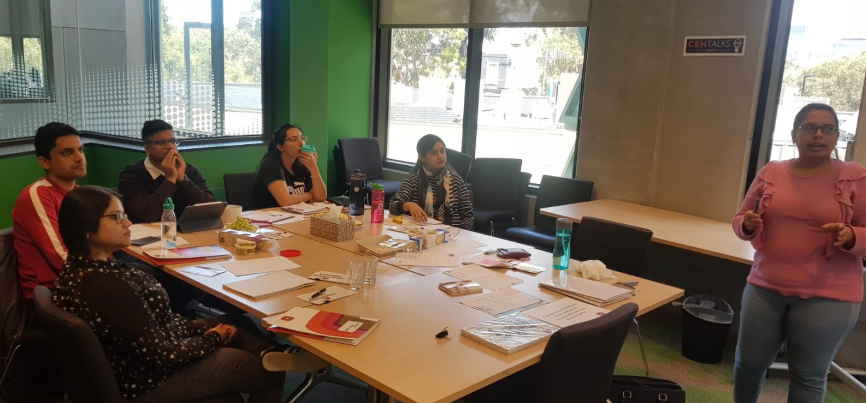
The Multicultural Health and Support Service (MHSS) has been running a Peer Education program for almost a decade with diverse communities including: Indian, Filipino, Thai Chinese, South Sudanese, Vietnamese, Ethiopian, Karen (from Myanmar) and Liberian.
The peer education program builds on the work of MHSS to develop partnerships, engage communities in culturally appropriate health responses and build capacity and knowledge about blood borne viruses (BBVs) and sexually transmissible infections (STIs). Through this we aim to increase communities’ ability to self-advocate and seek out testing, treatment and care for BBV/STIs.
Peer-led education is an evidence-based method of health promotion based on the notion that people learn from their peers (Shiner, 1999). Research demonstrates that peer-based programs are highly effective and facilitate important changes in health-related behaviours among CALD communities. Peer Education programs, however, require considerable resources with benefits such as improved health literacy and access to health services not easily tracked. As such MHSS has undergone a number of reviews during the life of the program.
Recently, the MHSS team have engaged the What Works and Why (W3) Framework developed by the the Australian Research Centre in Sex, Health and Society (ARCSHS) at Latrobe University.
For this evaluation MHSS looked at two recent programs: the Indian Peer Education Project run in 2019 – 2020 and the Viral Hepatitis Project run in 2018 – 2019 in partnership with St Vincent’s Melbourne and Cancer Council Victoria, with funding from the North Western Melbourne Primary Health Network.
The two projects delivered a combined 35 sessions to a total of 722 community members from the Indian, Pakistan, Bangladesh, Nepal, Kuwait, Chinese, Filipino and Thai communities.
Key Findings
- The majority of community members reported intentions to share information about hepatitis to friends and family and confidence to talk about hepatitis with their doctor.
- Peer educators felt engaged in the process and consulted on program decisions.
- The project responded flexibly to feedback and community needs, for example, including a session on “Taking care of your mental health during COVID-19” during the Indian peer education project that was run in part during 2020 Lockdowns.
- Partnerships with other community organisations have been strengthened through the project and partnerships have been leveraged to support broader reach of our messages, through sharing information, research or running education sessions together.
- The programs goals and strategies align with the current Victorian BBV/STI Strategies/ Plans as well as the Victorian Public Health and Wellbeing Plan 2015-2019 and Women’s Sexual and Reproductive Health – Key priorities 2017-21.
- Peer educators can maintain their engagement with MHSS and BBV/STI work within their community through joining the Multicultural Community Action Network (M-CAN) which enables members to advocate more effectively for the prevention of sexually transmitted infections (STIs) and blood borne viruses (BBVs).
Recommendations
- Develop a program that will provide effective support and supervisory structures for a formal partnership with the trained volunteer PEs in future projects.
- Continue to extend the capacity of PEs by introducing additional skills training where appropriate, and integrating professional development opportunities into the PE model.
- Methodology and tools for project data collection should be revised ahead of each phase of the project.
For a copy of the full report, click here
